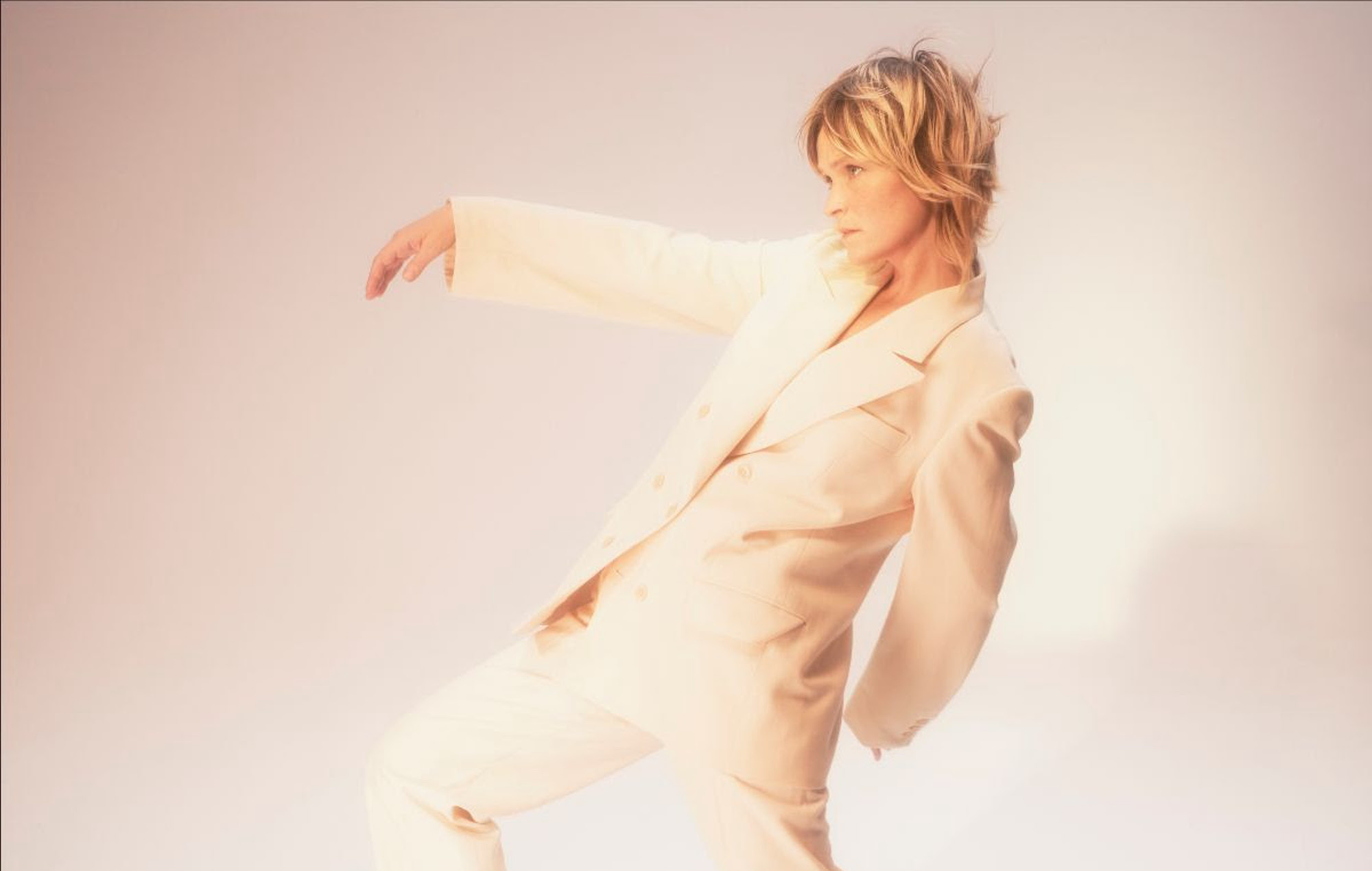
Listening to Baby Queen’s Bella Latham talk, it seems impossible that there might be an alternate reality where she isn’t on the road to pop superstardom. She dissects her story as a songwriter so far into “eras” like a veteran artist several albums deep, has an astute vision of who she is as a musician and, crucially, has the drive, work ethic and determination that doesn’t allow failure to be an option. No wonder she’s killing it.
The South African rising star’s journey began in the coastal city of Durban, where her uncle would send her poems and she made up little songs for her friends at school. When she was 13, she got home from a day spent in class and saw Taylor Swift’s ‘Love Story’ music video on the TV.
“I think it was the fact that there was this young girl that I saw a lot of myself in and she was using music as a vehicle to find her place in the world,” Latham assesses of that pivotal moment. “Taylor really raised me and I completely idolised her in so many ways. Had I not discovered her, I definitely wouldn’t be here, that’s for sure.”

“Here” is sitting in her room in London, where she moved to at 18. Strange as it might be to say in a time where you can become globally famous without leaving your bed, she quickly realised what she wanted from life couldn’t be obtained in her hometown. The music scene there at the time was “very male-oriented” indie bands and having a career in music wasn’t something people did. Add in Latham feeling “incredibly trapped” in who she was allowed to be there and getting over to London became an integral part of her big masterplan for success.
“I remember having two girls that were seeing each other at my high school and they would hold hands under the table – that was the gossip of the century and still, after living here, I’d go back and people would be talking about it,” she explains. She notes that she’s not trying to turn her back on where she’s from, but life there didn’t really fit her. “There’s things I’ve done [in London] like dying my hair or getting tattoos or not being 100 percent straight that people back home can’t deal with. I felt incredibly repressed there and it wasn’t anybody’s fault, it just didn’t feel like it was me.”
Landing in the UK, the now-23-year-old finally felt like she could breathe, but finding her true self took some figuring out. Not all of it was positive. “I was like a Taylor Swift [before I moved here] – the best behaved, most diligent, never put a foot out of line – and I went a little bit ballistic,” she says, referring to a period of heavy partying. Now, she’s found a sweet spot in the middle. “It turns out I didn’t want to be a lunatic, I just didn’t want to be what I was.”
In Latham’s grand plan to become the biggest pop star in the world, she imagined stepping off the plane and record deals falling at her feet. When that didn’t happen, the rejection she faced brought on periods of self-doubt, but there was always a voice at the back of her head telling her she was going to make it. That, and the fact it felt too late to turn around now. “Once you’ve given up everything – moved away from home, given up everyone that you knew, given up your whole life – you’ll never walk away,” she says firmly. “I would still be here for another 10 years doing this if it hadn’t worked out.”
So she stuck at it and, at the start of 2018, the Baby Queen era began to find its feet when she wrote what will be her first single of 2021. A few months later, the deceptively bright pop anthem ‘Buzzkill’ followed and the budding star felt like she was really onto something. She was right. The six songs she’s released so far, collated on last week’s ‘Medicine’ EP, are some of the most exciting tracks to be released this year.
Across the record, Latham smartly and satirically encapsulates the ups and downs of life in our digital world, dealing with everything from the blight of Facetune to the detachment of online dating. On ‘Internet Religion’, her swirling debut single, she sings about constructing new identities on social media and the side effects that has (“This is why the kids have got depression”). “I mute people that use social media in a way that’s just aesthetic self-promotion because that, for me, is the really damaging side of it,” she explains. “I grew up with the worst body dysmorphia so being able to make sure that the internet doesn’t become about that [is important].”
She describes her relationship with the internet as “a constant battle”, but points to her fans making it feel brighter. The Baby Kingdom, as she calls them, regularly make appearances in her Instagram Lives, while she has a group chat with them where they talk about relationships, Taylor Swift, politics and more. “We’ll be on FaceTime for hours and I genuinely have no idea what we’ve been speaking about,” she laughs. “These people that I’ve connected with over the past few months are more similar to me than any of my actual friends that I have in real life.”
One of the hallmarks of Latham’s music as Baby Queen is honesty and she says that is a big part of why she has such a close relationship with her fans. “When you write music that’s so open and so revealing, you’re sending out an invitation for those people to open themselves up to you in the same way,” she says. “It’s very difficult to stand for honesty without being prepared to have a really close and open relationship with these people.”
While some people credit their favourite pop music with changing their lives, Latham doesn’t think she has that power but there’s still an importance to what she does. “The only thing I can do is be honest about my experience so you know you’re not alone,” she says, adding that she “definitely” wants Baby Queen to be a pop star who can support her fans through their struggles.
Even when she’s writing songs about Killing Eve’s Jodie Comer, she’s unintentionally helped out some listeners. ‘Want Me’ is a solid gold banger of a song about being infatuated with someone you’ve never met, with Latham projecting her “insecurities and ideals” onto the Villanelle star. “People have really related to it in a sexuality way, which is difficult for me because I find that a difficult subject to broach,” she explains. “It’s still something that I don’t really understand about myself, but it feels really amazing to know that song has meant something positive to young girls out there.”

In any other time, Latham would be seeing these effects of her music firsthand from stages around the country. Instead, she has to make do with a virtual tour supporting Yungblud at the end of the month. “It’s interesting to have this be my first example of what a live show is with my band that I have now,” she ponders. “It’s amazing we get to do this – it’s definitely not the same as having people there, but it’s a really exhausting set, mad energy. It’s a great fucking show.”
As any star will tell you, you have to learn to adapt on your way to the top. Her masterplan might need tweaking in the age of coronavirus, but nothing is stopping Latham from continuing her ascent. She’s already planning to spend 2021 working flat out ahead of releasing her debut album in 2022, aiming to graduate from being a buzzy new artist to someone on the cusp of greatness in that 12 months. “I’ll stop working after the second album,” she jokes after running through her game plan. By that point, she should be well on her way to achieving her superstar dreams – and then some.
Baby Queen’s new EP ‘Medicine’ is out now. Pictures by Bella Howard
The post Baby Queen: pop newcomer offering support in difficult, digital world appeared first on NME Music News, Reviews, Videos, Galleries, Tickets and Blogs | NME.COM.









